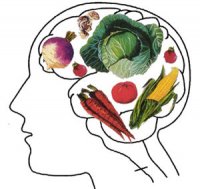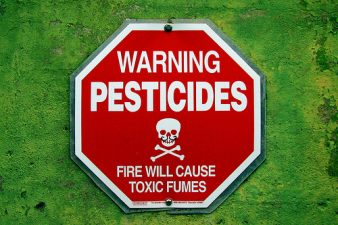 Those convenient bags of prepared salads are breeding grounds for bacteria, so say scientists from Britain’s University of Leicester. The best defense against inadvertent food poisoning is a hearty and immediate appetite: researchers advise consumers to eat bagged salad as soon as possible after opening the package.
Those convenient bags of prepared salads are breeding grounds for bacteria, so say scientists from Britain’s University of Leicester. The best defense against inadvertent food poisoning is a hearty and immediate appetite: researchers advise consumers to eat bagged salad as soon as possible after opening the package.
The study, published in the journal Applied and Environmental Microbiology, found that liquid from broken and torn leaves can boost bacteria growth by more than 110 percent while the veggies are still in sealed bags. Popular ingredients found in ready-made salads across the United Kingdom and Ireland were tested, including baby green oak, cos, red romaine, spinach, and red chard.
Lead scientist Dr. Primrose Freestone, from the university’s Department of Infection, Immunity and Inflammation, told the Telegraph, “Salad leaves are cut during harvesting and we found that even microlitres of the juices (less than 1/200th of a teaspoon) which leach from the cut ends of the leaves enabled salmonella to grow in water, even when it was refrigerated. These juices also helped the salmonella to attach itself to the salad leaves so strongly that vigorous washing could not remove the bacteria, and even enabled the pathogen to attach to the salad bag container.”
She said the study emphasized the need for salad leaf growers to keep up high food safety standards, as even a few salmonella cells in a salad bag at the time of purchase could become many thousands by the time the product reaches its use-by date.
“We found that even microliters of juice (less than 1/200th of a teaspoon) which leaches from the cut ends of the leaves enabled salmonella to grow in water, even when it was refrigerated,” said Freestone. “These juices also helped the salmonella to attach itself to the salad leaves so strongly that vigorous washing could not remove the bacteria, and even enabled the pathogen to attach to the salad bag container.”
Salmonella causes food poisoning, which produces symptoms ranging from nausea, stomach cramps, vomiting, diarrhea, and fever developing between 12 and 72 hours after becoming infected. Food poisoning usually lasts between four and seven days.
The Food Standards Agency (FSA) told The Huffington Post UK, “Salmonella is not a problem regularly linked with bagged salads – there has only been one incident reported to the FSA in the past 5 years.” But despite the seemingly low occurence if infection, experts advise consumers to avoid pre-washed salads, and if purchased to keep it chilled at all times, although refrigerator temperature does little to halt the spread of the bacteria.



